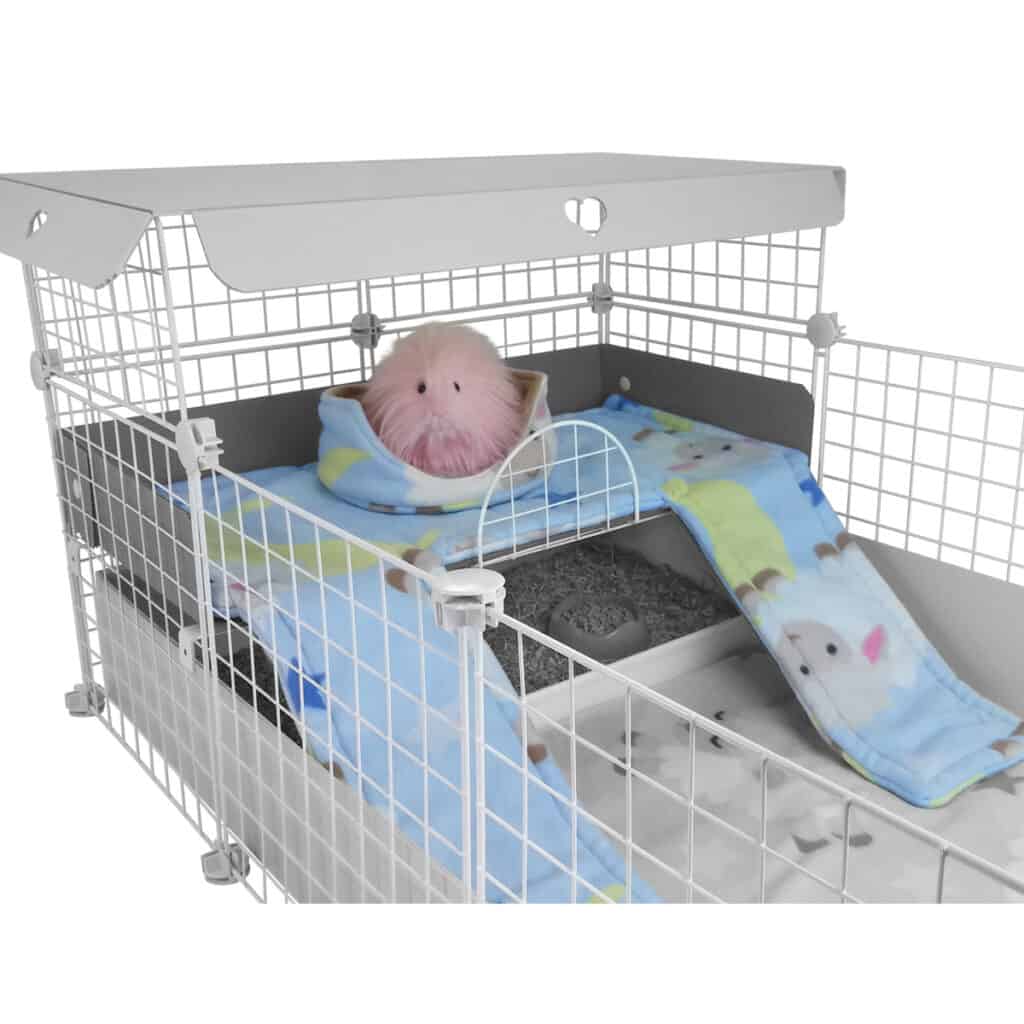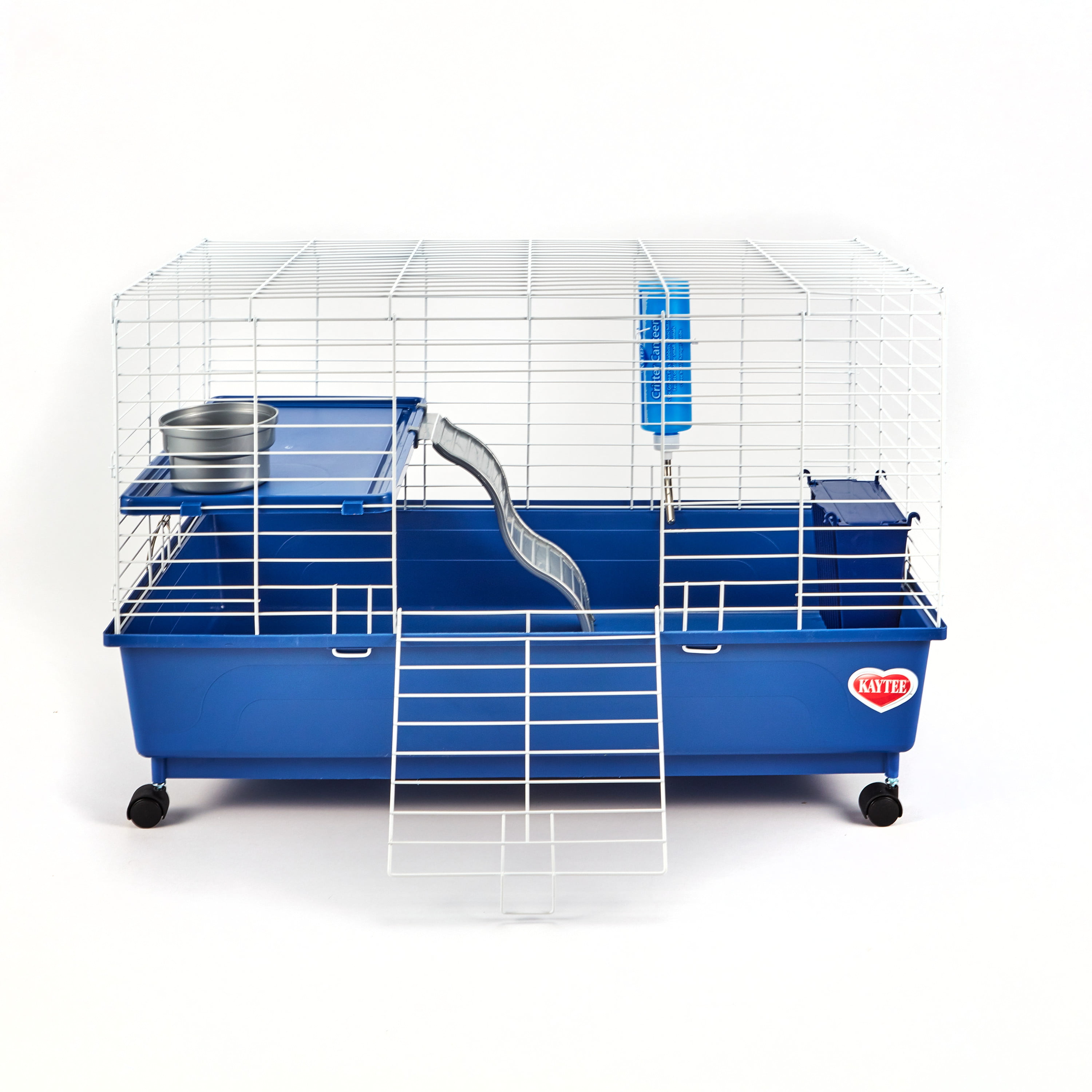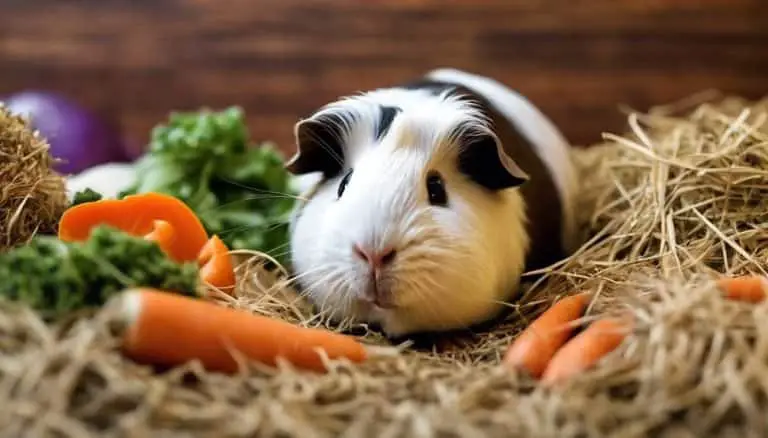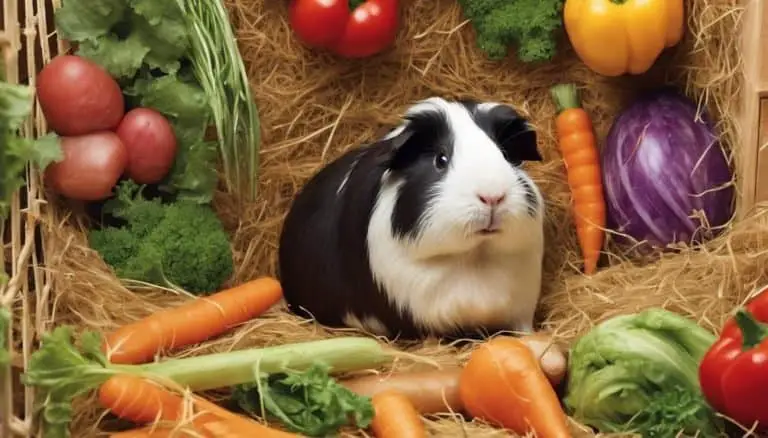Providing the Right Cage Size for Your Guinea Pig: What to Know
When you bring home a guinea pig, one of the first questions you may ask yourself is “How big of a cage do guinea pigs need?” Providing the right cage size for your guinea pig is essential for his or her health and well-being, and it’s important to understand the guidelines to ensure you are providing the best environment for your pet.
In this article, we will discuss what you need to know about providing the right cage size for your guinea pig, including what size of cage is recommended and how to create an enriching environment for your pet.
We will also provide tips for choosing the right cage and how to properly maintain it. By the end of this article, you will have a better understanding of how to provide a healthy and comfortable home for your guinea pig.
Understanding Cage Size Requirements
When it comes to cage size requirements for guinea pigs, guidelines are set by the American Pet Products Association. According to their guidelines, the minimum recommended cage size for one guinea pig is 7.5 square feet, and the minimum size for two guinea pigs is 10.5 square feet.
This size should allow enough space for your guinea pig to move around, and also create enough room for toys and activities. Furthermore, it is important that the cage is tall enough for your guinea pig to stand upright, so the height should be at least 12-14 inches.
In addition to providing the right size of cage for your guinea pig, it is also important to create an enriching environment. This means providing toys, hides, and chew items such as wood blocks and hay racks. This will encourage your guinea pig to explore, play, and engage in healthy behaviors.
Furthermore, it is important to provide a variety of substrate, such as shredded paper or shavings, for your guinea pig to explore and dig. Finally, it is important to provide fresh vegetables and hay, as these are essential for your guinea pig’s diet.
When selecting the right cage for your guinea pig, it is important to take into account the space and features you will need for your pet. Above all, it is essential to provide a cage that meets the minimum size requirements, as this will ensure your guinea pig can roam comfortably and receive the enrichment they need.

Benefits of an Appropriately-Sized Cage
The benefits of an appropriately-sized cage for a guinea pig are numerous. The right cage provides a safe, secure, and comfortable home for your pet, which is essential to their health and well-being.
An appropriately-sized cage also prevents overcrowding, which can lead to stress and fights among guinea pigs. Additionally, when a cage is the right size, it allows your pet to have more room to move around, play, and explore. This can help to keep them mentally and physically active, and reduce boredom.
When choosing a cage for your guinea pig, it’s important to understand the size and space requirements for the animal. A single guinea pig should have at least 7.5 square feet of floor space and the cage should be at least 24 inches long and 12 inches wide. Additionally, the cage should be tall enough to allow for at least 8 inches of headroom.
If you have more than one guinea pig, you should increase the size of the cage as necessary. Furthermore, it’s important to provide enough space for a sleeping area, areas for food and water, and toys and other enrichment activities. While there are many cage options available, always make sure that the cage is made of safe materials and is easy to clean.
In conclusion, an appropriately-sized cage is essential for a guinea pig’s health and well-being. When selecting a cage, it’s important to consider the size and space requirements of your pet. Additionally, the cage should be made of safe materials and be easy to clean.
By providing your guinea pig with an appropriately-sized cage, you can ensure that your pet has a safe and comfortable space that is both enriching and stimulating.
Guidelines for Choosing the Right Cage
When you bring home a guinea pig, one of the first questions you may ask yourself is “How big of a cage do guinea pigs need?” Providing the right cage size for your guinea pig is essential for his or her health and well-being, and it’s important to understand the guidelines to ensure you are providing the best environment for your pet.
Generally speaking, experts suggest that you provide a minimum cage size of at least 7.5 square feet for one guinea pig and at least 10.5 square feet for two. The larger the cage, the better, as guinea pigs need room to move and explore. Additionally, the cage should be tall enough to give your pet plenty of vertical space to explore, with a minimum height of 12 to 14 inches.
When shopping for a cage, look for one with plenty of horizontal and vertical space. The cage should also have plenty of places for your guinea pig to hide and explore, such as hidey-holes, ramps, and shelves. Also, look for a cage with a removable base, so you can easily clean the cage when needed. Lastly, make sure the bars on the cage are spaced close enough together so your guinea pig won’t be able to escape.
These guidelines will help you provide your guinea pig with a comfortable and enriching living space. By understanding the requirements for the right size cage, you can create an environment that your guinea pig will love and that will be beneficial to their health and well-being.
Tips for Creating an Enriching Environment
When it comes to creating an enriching environment for guinea pigs, bigger is almost always better. Ideally, guinea pigs should have a cage that is at least 7.5 square feet, and preferably even larger. This gives them enough room to move around, explore, and remain active.
There should also be plenty of places for them to hide, such as boxes and tunnels, as well as plenty of toys and other items that they can chew on. The environment and items within it should also be changed regularly in order to keep your guinea pig interested and engaged.
Finally, it is important to provide your guinea pig with enough room to exercise. A larger cage with additional play areas, such as a playpen, will allow your pet to get more exercise and stimulation. Additionally, try to spend time with your guinea pig and give it plenty of attention.
You can even create a space for it to come out and explore other areas of your house, such as your living room or bedroom, for short bursts of time. All of these things will help create an enriched environment for your guinea pig and keep it healthy and happy.

Additional Considerations
In addition to considering the size of the cage, there are other considerations to keep in mind when selecting the perfect home for your guinea pig. One of the most important is the material of the cage. Some materials, such as wire or plastic, can be uncomfortable for guinea pigs and can cause harm to their feet.
Additionally, these materials can make it difficult to keep the cage clean and free of bacteria. Instead, opt for a cage with a soft material, such as fleece or hay, that is comfortable and safe for your guinea pig.
You should also consider how many guinea pigs you will be housing in the cage. If you plan to house more than one guinea pig, you will need to provide them with plenty of space to move around and explore.
Look for a cage that is big enough to accommodate multiple guinea pigs and that has plenty of hiding places and other enriching activities to keep them entertained. Additionally, you will need to provide enough food, water, and bedding for all of the guinea pigs. Making sure there is enough space for everyone in the cage is essential for a healthy and happy environment.
Questions to Ask Before Buying a Cage
When you bring home a guinea pig, one of the first questions you may ask yourself is “How big of a cage do guinea pigs need?” Providing the right cage size for your guinea pig is essential for his or her health and well-being, and it’s important to understand the guidelines to ensure you are providing the best environment for your pet.
The minimum recommended cage size for guinea pigs is 7.5 square feet, but ideally your guinea pig should have an enclosure of 10.5 square feet or larger. A larger cage also allows for easier access to food and water and makes it easier to clean and maintain.
When choosing a cage, it is important to take into account the needs of your guinea pig. You should consider the size, shape and features of the cage, such as ramps, platforms, level surfaces, and hideouts. It is also important to make sure the cage is made of safe materials such as metal or wire mesh. Additionally, be sure to select a cage that is large enough for your guinea pig to move around, stand up, and turn around.
Finally, it is important to think about the environment where the cage will be located. Make sure the cage is located in a safe, secure area away from direct sunlight, drafts, and other animals. Additionally, consider how much noise and activity the area gets—your guinea pig needs a quiet, peaceful spot to relax.
By taking the time to think about these questions before buying a cage, you can ensure that your guinea pig will be comfortable and happy in his or her new home.







